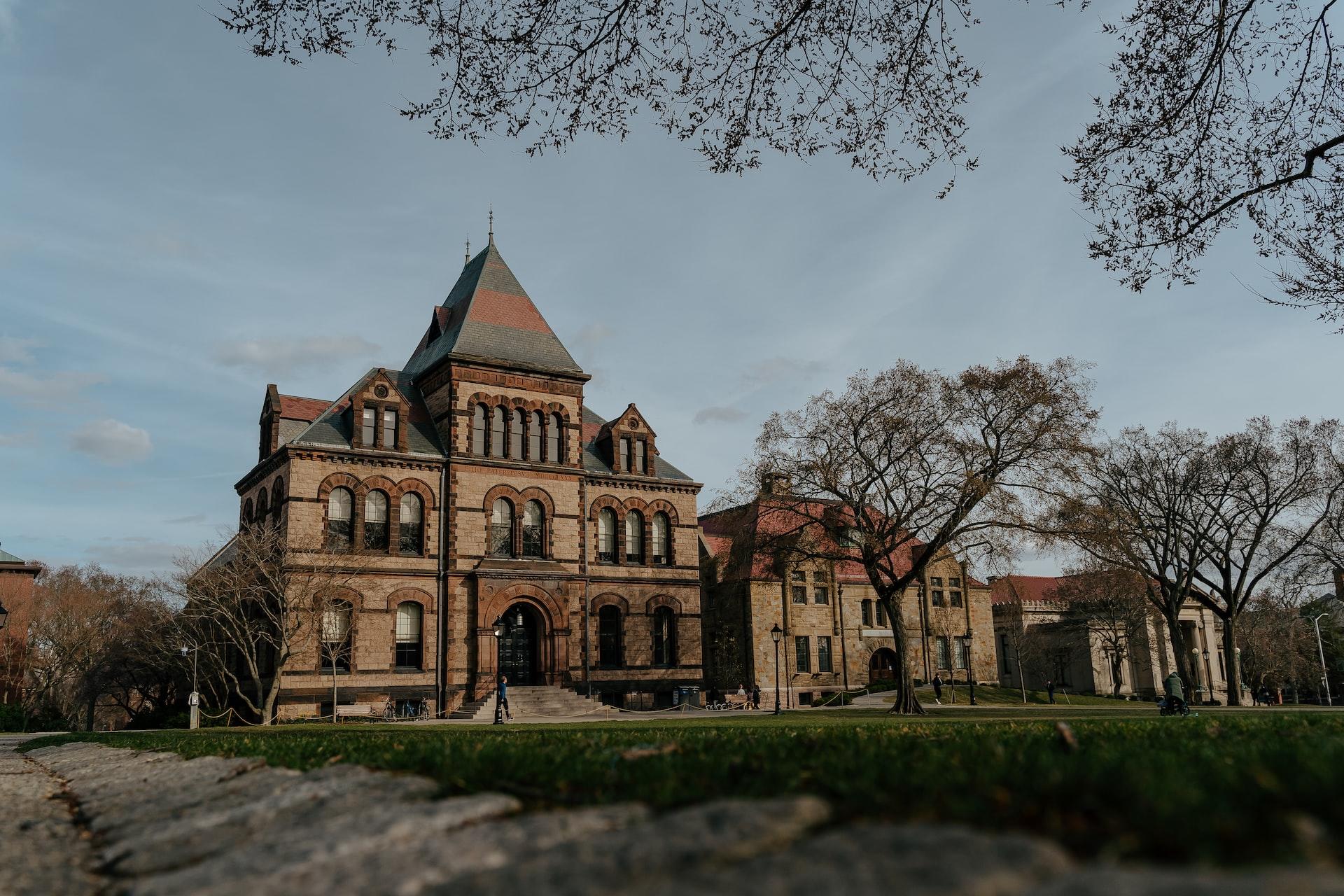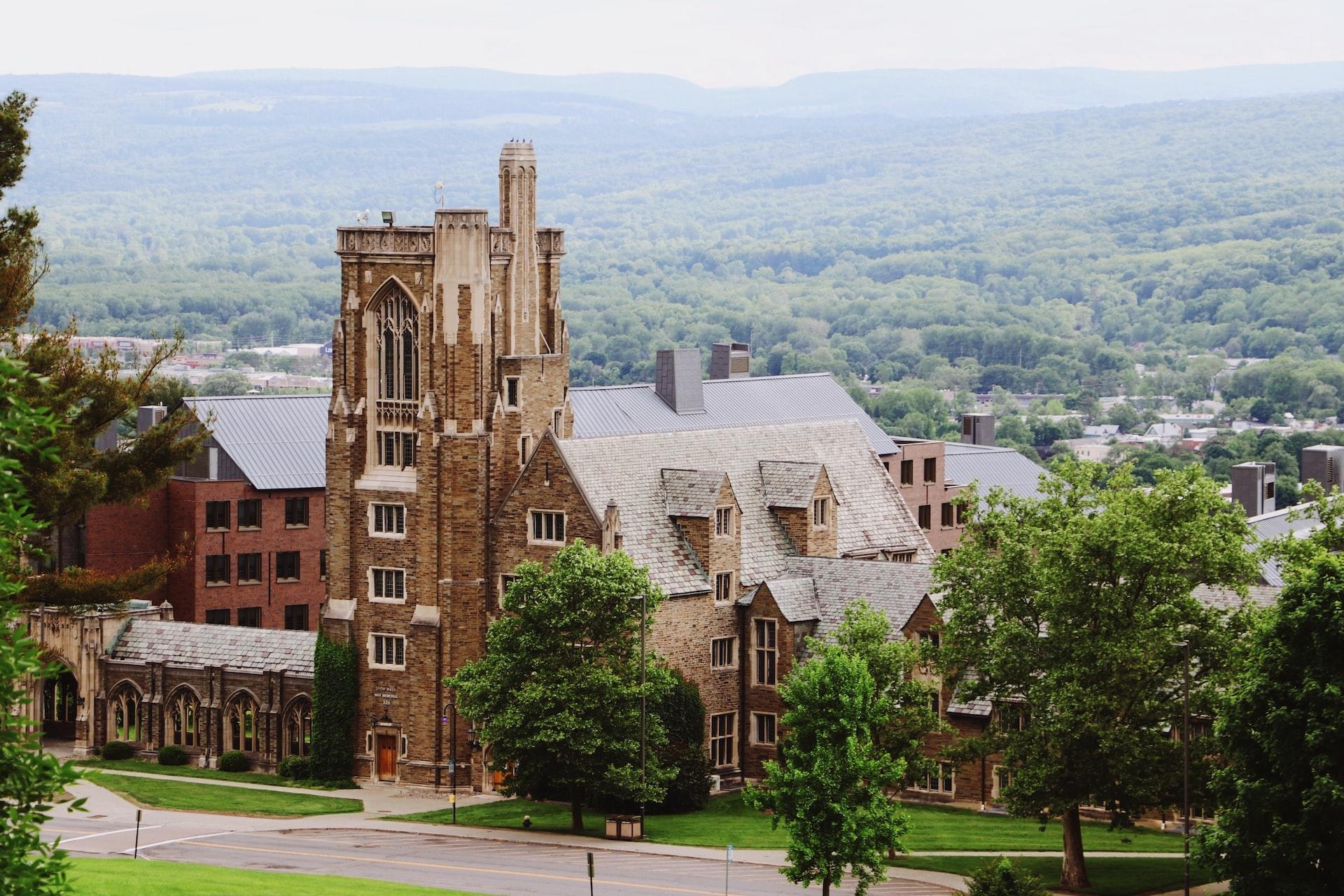If you're interested in studying biophysics or even majoring in it at college, the college you pick could make all the difference.
While there's more to each school than just the department responsible for your major, here are the best schools for biophysics. You'll get a good biophysics education here, but we're not taking into account any other factors that contribute to the college experience so make sure you consider all that before fully committing to any of them.
There's a caveat with biophysics, though. It isn't one of the most popular majors and even the best schools see less than 20 graduates majoring in biophysics each year, even when counting undergraduates, postgraduates, and doctorates.
It's also a relatively modern field, at least in terms of how it's been formalized through departments and groups in schools and colleges. In that sense, the jury's still out on which schools are the out-and-out best, but since most of these colleges also rank quite highly (most of them are top 20 in the country overall), you certainly won't find any of them to be bad schools.
Again, this mightn't be the list to end all lists, but it'll certainly give you some food for thought and a good place to start looking for schools and colleges if you have an interest in biophysics.
Let's see which colleges made the cut!

Northeastern University
At Northeastern University, there are degree programs in physics and several related interdisciplinary fields, too. This also means that students have the opportunity to participate in research in particle physics, biophysics, and nanotechnology.
A physics tutor can help you improve your knowledge with one one one lessons.

They also offer four different levels of courses so that everyone from students not majoring in science to students looking to become science graduate students can attend and develop skills and knowledge in physics and related fields (it might be worth seeing how biophysics differs from physics).
Furthermore, there's the option for students to combine majors, which is an interesting prospect for any student, especially those with a broad range of interests and the kind of profile that makes biophysics so appealing.
Georgetown University
Georgetown in Washington, DC, is one of the best universities for biophysics in the country. The biological physicists in Georgetown's Department of Physics look at biophysics at the single molecule level all the way up to biological networks.
Their focus also includes human health through biophysics and medical optical imaging techniques, with work taking place in their state-of-the-art Georgetown Nanoscience and Microtechnology Lab (GnuLab).
The Biological Physics program will have undergraduates taking courses in everything from mechanics, computational methods, and quantum physics to biological physics, electromagnetic phenomena, and statistical physics. Like most biological physics and biophysics programs, it's a mixed bag!
Be sure to read more about biophysics in our quick guide to biophysics.
University of California – Berkeley
UC Berkeley boasts a massive campus and “immense” resources for physics and biology, which naturally can be used by those interested in biophysics.
Along with the other University of California schools on our list, UC Berkeley is a public institution, making it more accessible.

The Biophysics Group at Berkeley is made up of faculty members from various departments including the Department of Molecular and Cell Biology, the College of Engineering, the College of Chemistry, and the Department of Physics.
While from disparate academic backgrounds, their goal remains the same: to study biological processes using a quantitative approach.
Like all of the schools here, UCB is ranked highly overall and in terms of studying biophysics.
Brown University
At Brown University in Providence, RI, students can focus on biophysics at an undergraduate level. Much like every other college on our list, the number of graduates for biophysics is very low, which makes them part of a small group, which bodes well for biophysics careers in the future.
Through the biophysics concentration at Brown, students take advanced courses in biology, physics, math, chemistry, and several other related fields.
They'll also be expected to complete a research project with their faculty advisor using the skills and knowledge they acquired during the program.

In terms of careers, a lot of the graduates from Brown's biophysics concentration progress to either graduate school or move into employment in healthcare, engineering, or research, which are the kind of career paths that most biophysicists follow.
As for biophysics careers, industry, research, or further study are the most likely choice regardless of which school you go to.
Seek the expertise of online physics tutors to explore top biophysics programs: receive expert guidance and comprehensive information on leading schools with exceptional biophysics programs, empowering you to make informed academic choices and excel in your educational journey!

University of Pennsylvania
The University of Pennsylvania boasts one of the country's first biochemistry and biophysics departments.
Graduate programs through the department of biochemistry and biophysics include biochemistry and molecular biophysics, cell and molecular biology, epidemiology and biostatistics, genomics and computational biology, immunology, neuroscience, and pharmacology.
As an interdisciplinary field, a lot of the department faculty are also involved in other departments while the department itself is also growing and expanding with new hires.
Biophysics at UPenn could be a great option for graduate and doctoral study.
University of California – Davis
University of California Davis (UC Davis) is a public university that offers graduate education in biophysics. The program explores how physical laws and physics governs biomolecules and cell and offers students the opportunity to discover and learn about cells, structural biology, membrane dynamics, optics, computation biology, and imaging all through the lens of qualitative and quantitative physics-based approaches.
The graduate program leads to a Ph.D. degree in biophysics and offers students a broad range of research options making it an exciting prospect for any student.
University of California – San Diego
At UC San Diego (UCSD), the Department of Physics' Biological Physics Group is responsible for research into living systems through chemistry, engineering, mathematics, biology, statistics, and, of course, physics!
Upper-division and graduate courses are available at UCSD for students interested in the field of biophysics and there are specialized Ph.D. programs in Computational Neuroscience and Quantitative Biology.
UCSD also ranks within the top 20 best colleges in the country overall and its biophysics opportunities are also highly recommended. It's also one of the few public universities on our list along with the other University of California entrants.
Students of all backgrounds should definitely look into UCSD if they're interested in a biophysics career.
Columbia University in the City of New York
At Columbia, the Department of Biochemistry and Molecular Biophysics is in charge of biophysics students from undergraduate to postdoctoral research and study.
The department spans three Columbia University campuses and conducts research into fields such as structural and computational biology, molecular neuroscience, development biology, gene regulation and signal transduction, systems biology, virology, and molecular evolution, to name a few! The faculty includes Nobel Prize winners and members of the U.S. National academy of Science.
This is a top 10 school both overall and for biophysics and certainly one to consider for any promising student.
Find out why biophysics is such a challenging major.
Cornell University
Cornell University is one of the top 10 schools in the USA and also one of the best for biophysics. However, at Cornell, biophysics is very much a major for graduate students. Physics with biophysics is something that physics majors can fully pursue once they've finished their undergraduate degree.

A lot of Cornell's work in biophysics takes place in their Lab of Atomic and Solid State Physics (LASSP) through the Single Molecule Biophysics Lab.
Anyone looking to have a future in biophysics would do well to attend Cornell for both undergraduate and graduate studies.
Duke University
Duke University in Durham, North Carolina, ranks as one of the top 20 colleges in the country, but when it comes to biophysics, there are few better than it.
While biophysics is interdisciplinary, the biophysics majors at Duke University are offered through the physics department in collaboration with the biology and chemistry departments.
The major offers training in biology, chemistry, mathematics, and physics and includes computer science and engineering.
Again, all of these are good schools for studying biophysics, but you know what kind of person you are. While attending the best biophysics classes from the best professors is one of the most important factors to consider when trying to get into a school, don't forget that things like location, environment, life on campus, and a whole heap of extra-curricular factors need to be taken into account, too!
There are also financial considerations. Think about the cost of living in the areas where you may be studying and whether it's a public or private institution.
Don't forget that since a lot of biophysics students complete graduate and doctoral degrees, you may need to consider multiple schools as your undergraduate may be in one and your postgraduate degree may be in another.
There are a lot of things to think about and that's before you've even started mastering physics, biology, maths, chemistry, statistics, and all the other fields and topics that contribute to biophysics!
Good luck!
Search for a physics tutor Houston or wherever you're located with Superprof.
Résumer avec l'IA :















